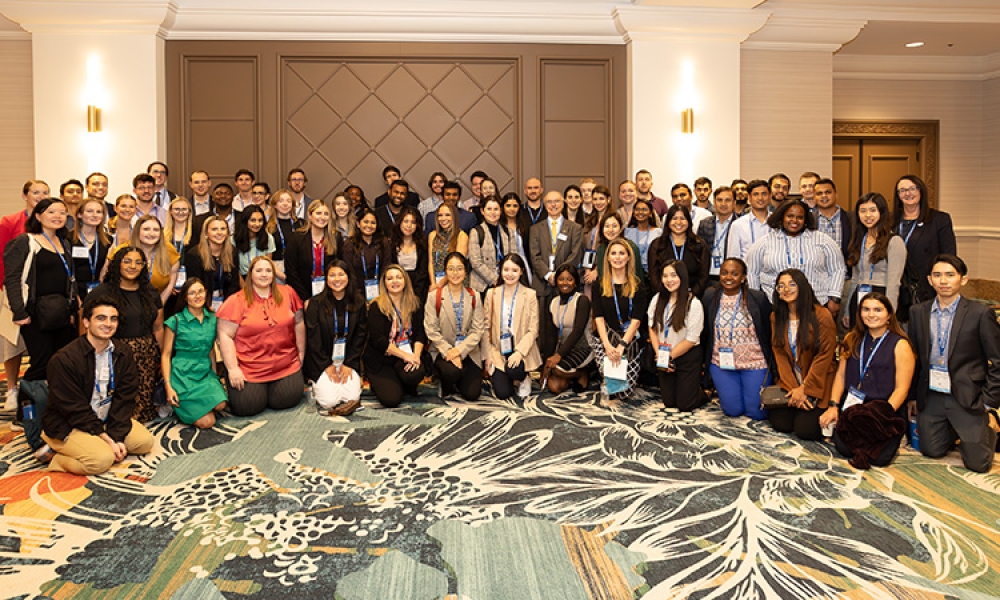The Culture Club: Upskilling - A Skill of Survival – Part 3 of 4

We are The Culture Club, a self-formed cross-CoP group of individuals who came together to discuss challenges encountered as we transition quality and validation into the digital world and identify ways to influence cultural changes needed within our industry to better enable innovation. As we are not all from the same CoP, we first needed to establish a way to connect and collaborate with all members of ISPE. This blog is the third in a series of four intended to explore how we can rethink the way we support and inspire one another as we reimagine quality and validation in a digital world.
We started this four part series in episode 1 with an introduction to the culture club and our desire to influence the cultural shifts needed to enable digital innovation in regulated space. Episode 2 discussed transparency which can be interpreted as both a reason to push digital innovation but also can be viewed as a perceived risk or deterrent to innovate. We believe that lack of skills or understanding of what digital technologies can provide can also lead to resistance in this change. With the rapidly changing environments, training and upskilling needs to be incorporated into our daily lives, not just discrete events or via annual refreshers. What’s more, training shouldn’t be focused on one skill or a specific tool but as John Klaess noted in Augmented Lean,1 “It’s critical not to teach particular technology, but to teach enabling frameworks, mindsets, and concepts that underlie many technologies, [such as] computational logic, working with functions, variables, and using those variables” (p. 245). Our workforce must be equipped to handle these changing responsibilities in the context of their current jobs. In this episode we will explore how you can upskill or support your team in upskilling activities to help enable the transformation into the digital world.
For starters, it’s important to note that digital tools shouldn’t be implemented for technology’s sake; they should be implemented to enhance our work, to make us more efficient/more effective. As Linder/Undheim stated in Augmented Lean1, “... automation is an interim process, but not a management focus or an end goal in itself. We should only automate to liberate humans to do more creative, value-added, and meaningful work” (p. 127). If we can embrace this mentality, upskilling can be perceived as a path to finding ways to enhance our work, not just to learn a new technology.
Upskilling is essentially the process of learning new skills to do your job. What’s inferred is …to do the same job vs. reskilling which is learning new skills to do a new job. Both will work here, but the point to note is that as we transition into the digital world, we need to understand what it means to do our jobs digitally. Things that we have long held on as staples in our day-to-day work such as paper routers, PowerPoint, Excel, and email are seeing a shift to collaborative tools such as Power BI/Tableau and interconnected environments such as Microsoft Teams, the Google suite of tools, or even platform based offerings that allow you to solve problems without needing to understand how to write code. These new tools require us to transition from previous ways of working and reimagine how that might look in the future. This could mean a dashboard for status updates instead of exporting data, creating graphics in Excel and then putting those graphics into your PowerPoint weekly status update.
Who are we talking to here? You. Your colleague. Your boss. Your direct report. Maybe a bit of an oversimplification but to address this let’s characterize three main personas of resistance to digital innovation and a fourth who might be effective in the evolution.
1. The never-been-taught
This persona has stayed in their frame of reference since beginning their career. Their skills might have been marginally improved by conferences or training, but they don’t like to leave the boundaries of their comfort zone and are resistant when new (i.e., digital) tools are deployed. Since they have no foundational skills, they may find the digital future intimidating and scary.
Way forward: This persona can benefit from searching out more information, taking a small project that requires them to learn new skills that also doubles as reinforcing the abilities to learn outside of a structured classroom. This persona would do well to search out new mentors in areas of curiosity to have a guide along the way to check in when the inevitable fear comes with the thought of “OMG, what did I get myself into…”
2. The overly focused leader
This persona is always focused on improving what they currently do, working on those KPIs, come hell or high water. They can easily lose sight of new skills because they are focused on their direct element of control and don't like to get caught up in “the how to’ s”. This persona, overall is loved in the workplace until digital disruption because they are always focused on the current environment and how to improve, the mindset towards up-skilling may be:
- doesn’t have the time
- not value added in the context of everything else
- only wants to see the dashboard or only the relevant information
Way forward: This person needs to be driven to upskill or have it made a metric. Let's start with drive, get the person pumped up in new directions and try to find a goal they could track or baseline themselves on. This allows for parameters that feel like home for this person . Next would be metrics, bring some data about trends and make upskilling part of their objectives, which attaches upskilling to their core work which this persona takes very seriously.
3. The protector (invested in what was)
This persona focuses on protecting functional barriers, IP barriers, financial investment, owns status, and knowledge base.
Way forward: Engage this person in the change, even make them a leader in the change. Ownership may provide the right motivation to absolve the resistance.
4. The cowboy/cowgirl - out there, gun slinging in the wild west
This persona is already out in the upskilling universe trying anything and everything. Learning isn't the issue with this group; it's refining and standardizing that requires a bit of a push. These are your early adopters who will do wonders for your organization if they can bring the early majority and the late majority of adopters with them. This persona typically is using all the new technologies and then switches to a different version every few months. You know the person using Jira, DevOps, Trello, Taska, etc. A less aggressive version of this persona might be called a pioneer, or one who paves the way by exploring the new tools but not quite the first adopter.
Way forward: Help this person learn to lead, create the ability for them to drive change but keep them accountable for long-term adoption. This usually will stretch the person’s ability as they are usually able to skip off to the next shiny item.
Regardless of which persona(s) you associate with, upskilling is one of the most important investments you can make in yourself, the function you support, and your company.
What can you do today? If you identify with one (or more) of the personas try little changes every day.
- Adopt the use of technology in your personal life (Siri, Lyft, online banking, Ring, etc. ).
- Recognize that technology, implemented correctly, can enable you to work smarter and more efficiently. Find ways to enhance what you’re already doing.
- Look into course options your employer might provide or that are cost-effective (C Coursera, YouTube, etc.).
- Start or join a community of practice around a topic you enjoy that could also be in the upskilling realm. This helps you find a network of people at similar and different skill levels and gives you accountability on getting involved.
- Take a current project you might be working on, challenge the status quo, map out how you would redo a process. Dream big, then work backwards to see what would need to change, this will eventually lead you to what the next step could be, and you could follow from there.
If you find yourself on the other side of the “coin” and are an adopter, be the agent of change. Identify colleges who might fit into these personas, consider their perspectives, and tailor your message by sharing your quality, efficiency, and effectiveness gains. And remember that reskilling requires us to rethink how digital operations are enabling our workforce and a cultural shift to a paradigm where training is a continuous execution of learning.
Join the culture club. Embrace the change, enjoy it with us, and add your experience to the transformation. Choose the change.
As we stated in the beginning - this is the third in a series of four. It is the beginning, an introduction, a warm up… Make little changes today for ongoing culture shifts. Start this practice now so that it becomes routine; routine to question the status quo, routine to identify the objective of your actions (without making a copy of the last project, then finding and replacing each reference to the old project), and routine to think digitally and reimagine how we use all this data!
Until next time friends
The Culture Club: Be the Change – Part 1
The Culture Club: Transparency – Part 2
The Culture Club: Wrapping it up - Part 4 of 4
-The Culture Club
iSpeak Blog posts provide an opportunity for the dissemination of ideas and opinions on topics impacting the pharmaceutical industry. Ideas and opinions expressed in iSpeak Blog posts are those of the author(s) and publication thereof does not imply endorsement by ISPE.
- 1Linder, Natan and Undheim PhD, Trond Arne, Augmented Lean, Wiley, 2023






